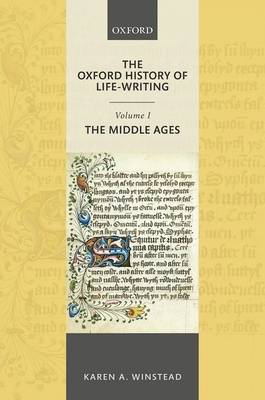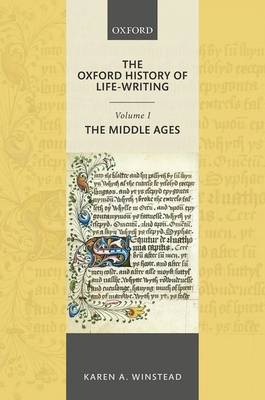
Bedankt voor het vertrouwen het afgelopen jaar! Om jou te bedanken bieden we GRATIS verzending (in België) aan op alles gedurende de hele maand januari.
- Afhalen na 1 uur in een winkel met voorraad
- In januari gratis thuislevering in België
- Ruim aanbod met 7 miljoen producten
Bedankt voor het vertrouwen het afgelopen jaar! Om jou te bedanken bieden we GRATIS verzending (in België) aan op alles gedurende de hele maand januari.
- Afhalen na 1 uur in een winkel met voorraad
- In januari gratis thuislevering in België
- Ruim aanbod met 7 miljoen producten
Zoeken
Omschrijving
The Oxford History of Life-Writing: Volume 1: The Middle Ages explores the richness and variety of life-writing from late Antiquity to the threshold of the Renaissance. During the Middle Ages, writers from Bede to Chaucer were thinking about life and experimenting with ways to translate lives, their own and others', into literature. Their subjects included career religious, saints, celebrities, visionaries, pilgrims, princes, philosophers, poets, and even a few 'ordinary people.' They relay life stories not only in chronological narratives, but also in debates, dialogues, visions, and letters. Many medieval biographers relied on the reader's trust in their authority, but some espoused standards of evidence that seem distinctly modern, drawing on reliable written sources, interviewing eyewitnesses, and cross-checking their facts wherever possible. Others still professed allegiance to evidence but nonetheless freely embellished and invented not only events and dialogue but the
sources to support them. The first book devoted to life-writing in medieval England, The Oxford History of Life-Writing: Volume 1: The Middle Ages covers major life stories in Old and Middle English, Latin, and French, along with such Continental classics as the letters of Abelard and Heloise and the autobiographical Vision of Christine de Pizan. In addition to the life stories of historical figures, it treats accounts of fictional heroes, from Beowulf to King Arthur to Queen Katherine of Alexandria, which show medieval authors experimenting with, adapting, and expanding the conventions of life writing. Though Medieval life writings can be challenging to read, we encounter in them the antecedents of many of our own diverse biographical forms-tabloid lives, literary lives, brief lives, revisionist lives; lives of political figures, memoirs, fictional lives, and psychologically-oriented accounts that register the inner lives of their subjects.
sources to support them. The first book devoted to life-writing in medieval England, The Oxford History of Life-Writing: Volume 1: The Middle Ages covers major life stories in Old and Middle English, Latin, and French, along with such Continental classics as the letters of Abelard and Heloise and the autobiographical Vision of Christine de Pizan. In addition to the life stories of historical figures, it treats accounts of fictional heroes, from Beowulf to King Arthur to Queen Katherine of Alexandria, which show medieval authors experimenting with, adapting, and expanding the conventions of life writing. Though Medieval life writings can be challenging to read, we encounter in them the antecedents of many of our own diverse biographical forms-tabloid lives, literary lives, brief lives, revisionist lives; lives of political figures, memoirs, fictional lives, and psychologically-oriented accounts that register the inner lives of their subjects.
Specificaties
Betrokkenen
- Auteur(s):
- Uitgeverij:
Inhoud
- Aantal bladzijden:
- 256
- Taal:
- Engels
- Reeks:
Eigenschappen
- Productcode (EAN):
- 9780198707035
- Verschijningsdatum:
- 12/06/2018
- Uitvoering:
- Hardcover
- Formaat:
- Genaaid
- Afmetingen:
- 160 mm x 236 mm
- Gewicht:
- 544 g

Alleen bij Standaard Boekhandel
+ 232 punten op je klantenkaart van Standaard Boekhandel
Beoordelingen
We publiceren alleen reviews die voldoen aan de voorwaarden voor reviews. Bekijk onze voorwaarden voor reviews.









